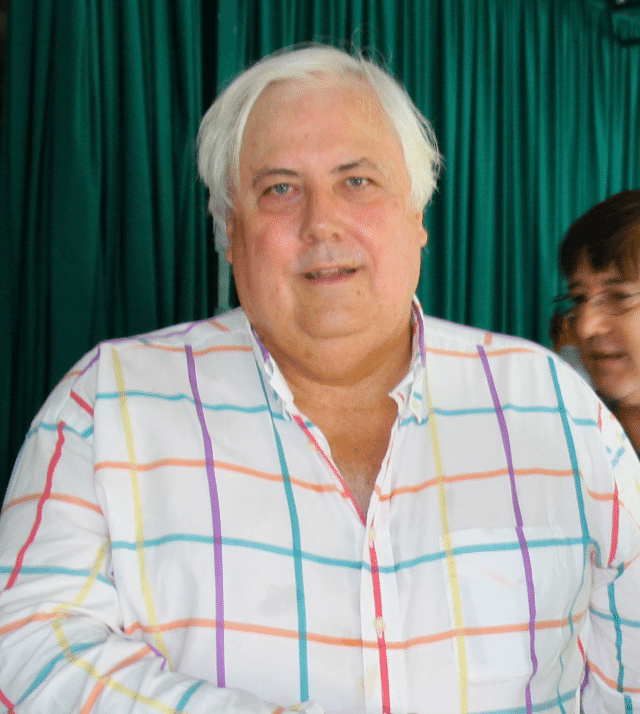Clive Palmer’s billboards have been sighted everywhere, and the billionaire is very confident of his party having success at the upcoming election. Source: Matt Levinson
He’s back.
After a brief media spell, United Australia Party (UAP) leader Clive Palmer, arguably the most colourful character in Australian politics, has returned to the headlines today after announcing some radical plans on home mortgage interest rates.
Following the Reserve Bank of Australia (RBA) lifting the official cash rate to 0.35 (from 0.10) for the first substantial rise in over a decade, the billionaire unveiled his party’s “economic plan for freedom and prosperity”.
The UAP have pledged to cap home loans at a fixed interest rate of three per cent for the next five years, claiming a rise to four per cent would see three in five Australians lose their homes.
There has been no evidence to support this claim.
“We have to stop people from losing their homes,” Mr Palmer said.
“The real estate market will then collapse, and foreign buyers will flood our real estate market as they will have the money to buy up our properties.”
These bold statements, accompanied with a bottomless financing pool (seen the yellow billboards?) and the UAP’s increasing presence in the political sphere mean that any publicity is good publicity.

Mr Palmer is expected to spend up to $70 million on this month’s Federal Election.
The RBA sets the cash rate, not the Federal Government, with banks following the RBA’s lead.
The media release attached to Mr Palmer’s press conference said his party would use “the power of the Constitution” to stop cap lending rates.
Monash University economics lecture Dr Zac Gross said that the UAP’s policy is dicey at best.
“If the banks can’t recover their costs when they make mortgages, they are only going to lend to the wealthiest households,” he said.
“That’s their safest best.
“Even if you get a little bit off your mortgage, if your house is 10 per cent less valuable, then you’ve probably lost more on the crash than what you make up with a slightly lower mortgage payment.”
Some of the other UAP policies include the abolition of Federal cabinet and bringing Australian super back from foreign countries.
However, based on polling, their most popular policy could be the opposition to COVID mandates and a clear focus on “freedom”.





